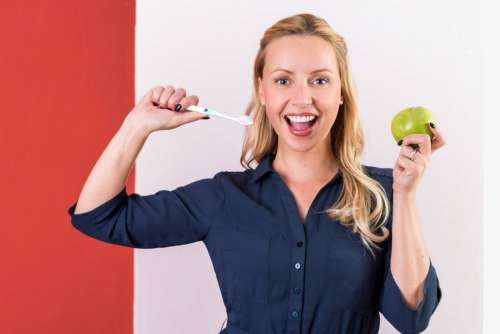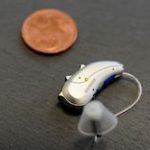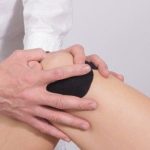
Healthy teeth – facts against myths
Do not forget to brush your teeth after eating. Firm scrubbing does the trick. Or: An apple replaces brushing your teeth. Who has not heard these phrases? But are they right?
proDente takes a closer look at the various supposed wisdoms. Because the right knowledge helps to keep teeth and mouth healthy.
Myth: Do not forget to brush your teeth after a meal.
Optimal oral hygiene twice a day and interdental cleaning with dental floss or interdental brushes once a day is essential for maintaining oral health. A time should always be chosen before going to bed if possible. The second brushing should take place when there is enough time available. Thoroughness takes precedence over frequency. Of course, oral hygiene after every meal is sensible, but not realistic in today’s living conditions. Sugar-free chewing gum is recommended to stimulate saliva production for self-cleaning.
Myth: Firm scrubbing does the trick.
The fact is that brushing with too much pressure can damage teeth and gums. A light pressure of maximum 150 grams is recommended. Tip: Test the pressure with a toothbrush on the kitchen scale. Important: Brush with system. To brush the tooth from the gum (red) to the tooth (white) with sweeping movements. When brushing your teeth, start with the chewing surface, then clean the outer and finally the inner surfaces of the teeth – the so-called KAI system. Scrubbing is allowed on the chewing surface, but only there.
Myth: An apple replaces tooth brushing.
The fact is that apples contain vitamins and minerals and are therefore healthy. Chewing solid food also promotes oral health. Chewing an apple does remove surface plaque to a small degree. However, an apple is by no means a substitute for a toothbrush. It should also be noted that fruit acid and fructose can attack tooth enamel. Therefore, one should eat a balanced diet and take into account breaks in acid intake from raw fruits and vegetables. Otherwise, so-called erosions can occur.
Myth: Sugar-free means no sugar in it.
The fact is that beverages or foods that say “sugar-free” on their label may not contain household sugar. Other sugars such as glucose (grape sugar), fructose (fruit sugar), lactose (milk sugar) or maltose (malt sugar) can still be present. So be careful – it pays to look closely: because these sugars also promote the development of caries and should therefore only be enjoyed in moderation. Other foods and beverages also often contain a lot of sugar – check the ingredients.
Myth: Fluoride is toxic.
Fluorides are salts and therefore a fluorine compound. Pure fluorine, on the other hand, is highly toxic. However, fluorine reacts quickly with other elements to form fluorides. Fluorides are a natural component of teeth and bones. To prevent caries, they are found as sodium monofluorophosphate, amine fluoride or stannous fluoride in most toothpastes. Fluorides protect and harden tooth enamel.
Myth: Change toothbrush when bristles stick out.
The right thing to do is to change the toothbrush in time. If the bristles are bent, the cleaning effect decreases significantly. As a rule, the toothbrush should be changed after three months. Sometimes an earlier change can be useful.
Myth: Chewing gum replaces brushing teeth.
It is a fact that chewing a sugar-free gum stimulates salivation. Saliva is important in digestion, and defense against pathogens and can repair incipient tooth damage. In return, it provides minerals and the saliva film protects the mucous membranes. If sugar-free chewing gums are used regularly, for example after meals, they promote dental health. But they do not replace brushing. Because only toothbrush and dental floss, respectively. Interdental brushes remove bacterial plaque on and between teeth.
Myth: Bleeding gums are not bad.
It is a fact that bleeding gums are a symptom of disease and should be taken seriously as a warning signal. If this occurs more frequently, the dentist must clarify possible causes. Bleeding gums can be a symptom of inflammation of the gums (gingivitis) or even of the entire periodontium (periodontitis). Periodontal disease, if left untreated, can lead to tooth loss and affects the health of the entire body. Both should and can be counteracted.
Myth: Infants do not yet need a toothbrush.
It is a fact that children are able to control the toothbrush in their mouths and brush independently only from primary school age, when they can write fluently. Until then, children should brush themselves – but parents must instruct and rebrush. The KAI system is also suitable for children: first brush the chewing surfaces, then the outer surfaces and finally the inner surfaces of the teeth. However, it must be done in an age-appropriate manner. It is important to start brushing as soon as the first tooth erupts. This not only promotes oral health, but also creates a very important daily ritual. Let the dentist’s office show you how to start brushing with toddlers.
Initiative proDente e.V. – Facts
Five associations representing the entire dental spectrum in Germany are involved in the initiative proDente e.V.:
– The German Dental Association (BZÄK),
– The Free Association of German Dentists (FVDZ),
– The Association of German Dental Technicians Guilds (VDZI),
– The Association of the German Dental Industry (VDDI),
and the Federal Association of Dental Trade (BVD).
Why this initiative?
proDente has set itself the goal of providing sound expertise in the fields of dentistry and dental technology. The initiative aims to provide dedicated patient education to support dentists and dental technicians.
proDente wants to present the value of healthy and beautiful teeth. Above all, the educational work from prophylaxis to prosthetics is the focus here. For dentists and dental technicians, proDente presents a comprehensive range of services to facilitate communication with patients.
Activities
proDente produces scientifically based information material in an easy-to-understand format. This includes the information brochure “Teeth good – everything good” as well as numerous other magazines, flyers and leaflets on specific areas of dentistry. The range of topics is regularly expanded. proDente is present on the Internet with an information portal (www.prodente.en).
Office
Dirk Kropp, Managing Director Public Relations, is the contact person for all questions relating to proDente’s public relations work. The office is located in Cologne.





